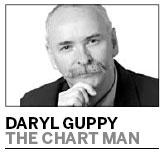The collapse of MF Global Holdings again highlights the perils of derivative leverage in a loosely regulated market. It shows the need for genuine transparency in financial markets.

MF Global had $1.4 billion in equity which it used to run up $44.4 billion in liabilities largely in trading European debt. The collapse of MF Global also dragged down its other trading operations, hitting individual investors and traders who found their accounts frozen and positions liquidated at unfavorable prices.
MF Global was a brokerage with aspirations to become a hedge fund and an investment bank. There was no need for a banking license so MF Global was free to ignore rules on leverage that applied to banks.
The timing of the collapse with a rush to file for Chapter 11 bankruptcy is always sudden, but the steady decline of MG Global is easily seen in the MFGLQ price chart. The rapid fall below the historical support level at $7 started in August. This was an acceleration of a shallow downward trend that started in January from the high near $9. The rapid move down and collapse below US$3.70 on Friday, October 25, confirmed there were serious problems. There were both long-term and short-term warnings in the activity.
We cannot regulate against stupidity or bad management but we can regulate to improve the transparency of operations so investors and traders are more informed about the risks and performance of a company. Too often bookkeeping and accounting reports are a forest of half-truths and manipulated figures. Comparing the hype of company reports with the reality of the price chart is an important first step in transparency - but only if we can trust the price reported in the market.
The market is a mechanism for price discovery. It sounds very academic but it's a vital function that allows the accurate pricing of a company. The 2008 market collapse, and the subsequent collapses of banks, institutions, funds and MF Global, all reveal hidden secrets. The effect of failure is enlarged when market transparency fails.
Despite this there is an increase in the trend toward market secrecy with an expansion of "dark pool" trading. This is trading between large funds and in situations that takes place away from the public market.
Institutional traders prefer to trade in dark pools because they can do so in secrecy. Bruce Rose, head of equity dealing for one fund, said: "Every time you trade or put an order in the system you create a price signal. The more price signals you create the more opportunity someone has to know what you are doing and get in front of you. You use a dark pool so you do not show a price signal."
Lets break this statement down for closer examination.
"Every time you trade or put an order in the system you create a price signal."
The stock price is determined by an open and transparent public auction system. The openness and transparency of this public process lies at the very heart of the stock market and is essential for market integrity. Understanding price signals is an essential part of the transparency of the market that allows an accurate and informed matching of bid and ask to achieve an informed traded price.
"The more price signals you create the more opportunity someone has to know what you are doing and get in front of you."
Knowing what others are doing in the market creates an informed market. It is unfair if one trader is able to see the market prices and then trade in secret using that information. This lack of transparency is a major part of the problems that created the global financial crisis.
"You use a dark pool so you do not show a price signal."
It's a type of market manipulation and inside trading. Manipulation because the dark pool trader is able to buy or sell without the public market being aware of the activity. If you hide the price signal, then the market is not fully informed. This is tantamount to insider trading where you trade on information that is not available to the general market, or deliberately concealed from it.
Price discovery using an open, transparent, public system is at the heart of market integrity. The dark pools are not transparent and nor do they carry the same level of regulation as brokers operating in the public market. The brokerage industry carries a high regulatory burden designed to protect traders and investors against counter-party risk. Increased dark pool activity casts a shadow over the fairness and accuracy of price and the process of market price discovery.
Dark pools are not evidence of a mature market. They are evidence of a corrupted and decadent market where price secrets are kept from the public market.
The author is a well-known international financial technical analysis expert.





